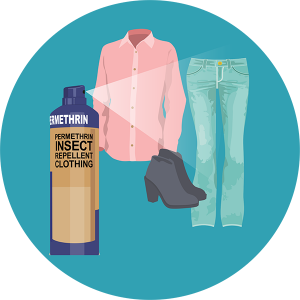Awareness & Prevention
Florida State University is taking proactive steps to comprehensively address Zika Virus concerns in the North Florida area.
While there have been no locally acquired mosquito-borne cases reported in Leon County at this time, university administrators are working in direct coordination with local, state and federal officials to ensure the safety of the FSU community.
Zika Virus primarily spreads through the bite of an infected Aedes species mosquito. These mosquitoes are aggressive daytime biters and are also known to bite a night. Zika virus can also be passed through sexual contact from a person who has Zika to his or her sexual partners.
Florida State University is educating its students how to reduce the risk of Zika exposure through a number of methods. This includes engaging students directly with Zika awareness and prevention tips via email, on the university’s websites and on social media platforms. University health officials are also distributing informational posters, handouts and door hangers throughout campus, including in student residence halls.
Additionally, university health and support staff have received updated Zika information and training. This includes all clinicians at the FSU Women’s Clinic and all nurse practitioners at the Health and Wellness Center. FSU’s Center for Health and Advocacy staff will share Zika prevention tips, information and updates during all health promotion events throughout the school year.
Leon County Mosquito Control conducted mosquito spraying around the residence halls, campus greens, student union, campus childcare centers, and outdoor practice fields at the beginning of the week and will spray around Doak Campbell Stadium prior to each home football game this fall.
FSU Facilities and Grounds staff are actively seeking and emptying areas of standing or stagnant water on campus. Faculty, students and staff are encouraged to do the same whenever they encounter standing water on campus and off, especially in the neighborhoods and residences in the campus vicinity.
The two primary ways to prevent the contraction and spread of Zika Virus are:
The Zika Virus Information Hotline for Florida residents and visitors can be reached at 855-622-6735 and additional information can be found at Centers for Disease Control
Information Resources
If you have any questions about Zika virus, or if you think you may be developing symptoms of a Zika virus infection, contact your doctor or primary physician. The Department of Health also has the Zika Virus Information Hotline at 1-855-622-6735 for additional information. The CDC and Department of Health also have the resources below to help:
Downloads
Zika Prevention Tips
The best way to help prevent and spread Zika, is by protecting yourself and your family from mosquito bites. Here are some preventative tips:

- Use insect repellent on both skin and clothing
- Look for the following active ingredients: Deet, Picaridin, Oil of Lemon or Eucalyptus, Para-menthane-diol.
- Environmental Protection Agency-registered insect repellents are available for pregnant and breastfeeding women.
- Wear long-sleeved shirts and long pants
- For extra protection, treat clothing with repellent
- Stay & sleep in places with air conditioning and ensure doors and windows are covered with screens
- Take steps to control mosquitoes inside and outside your home
- Remove standing water in and around your home where mosquitos can lay eggs
- Mosquito netting and mosquito beds can be used if sleeping outdoors or without air conditioning
- Prevent sexual transmission of Zika by using condoms or abstain from sexual intercourse
- If traveling to an area of the world with widespread Zika transmission, speak with your healthcare provider prior to leaving and follow steps to prevent mosquito bites
- Check the latest travel notices before visiting that area, please Center for Disease Control’s Travelers website for the most up to date travel information.
- If pregnant, please refer to the CDC Zika Virus Information for Pregnant Women website
- Returning travelers should continue to protect themselves from mosquito bites, protect themselves during sex, and should see a doctor/healthcare professional if one feels sick after returning from trip.
Fight mosquitoes with these simple tips!
